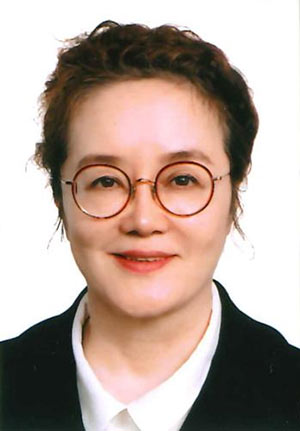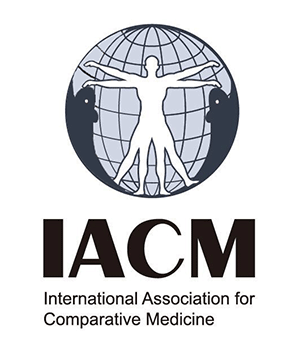
The current version of the Tecniplast website doesn't match your region. Please visit your local website to find information and offerings specific to your country.

The current version of the Tecniplast website doesn't match your region. Please visit your local website to find information and offerings specific to your country.

Discovering the Role of IACM and the Origins and Characteristics of Comparative Medicine
International Association for Comparative Medicine (IACM) was established in China in 2019. This association has since evolved into a pivotal platform that unites experts and researchers in the field of comparative medicine, fostering international cooperation and knowledge exchange. IACM plays a vital role in advancing not only comparative medicine but also basic medical sciences, clinical medicine, and pharmacy.
 Qin Chuan is a member of Chinese Academy of Medical Science (CAMS), senior scientist of Institute of Laboratory Animal Sciences, CAMS&PUMC, vice-president of Chinese Women Scientists, president of Chinese Association for Laboratory Animal Sciences (CALAS), director of National Technical Committee 281 on Laboratory Animal of Standardization Administration of China and National Human Disease Animal Model Resource Center.
Qin Chuan is a member of Chinese Academy of Medical Science (CAMS), senior scientist of Institute of Laboratory Animal Sciences, CAMS&PUMC, vice-president of Chinese Women Scientists, president of Chinese Association for Laboratory Animal Sciences (CALAS), director of National Technical Committee 281 on Laboratory Animal of Standardization Administration of China and National Human Disease Animal Model Resource Center.
She is the chief editor of ACTA Laboratorium Animals Scientia Sinica, Chinese Journal of Comparative Medicine and Animal Model and Experimental Medicine.
She is also the president of Asian Federation of Laboratory Animal Science Associations (AFLAS) and International Association for Comparative Medicine (IACM). Professor Qin mainly engaged in comparative medicine and experimental pathology research.
She developed the National Human Disease Animal Model Resource Center for infectious, neurodegenerative diseases and other diseases, Technical Platforms for Comparative Medicine and National Infectious Disease Animal Models.
She established the first COVID-19 animal model in the world, which was selected as the Top Ten Advances in Life Sciences in China in 2020.
She won many scientific and technological awards such as the Second Prize of National Science and Technology Progress Award of China and China’s first National Innovation Competition Award, and was awarded the honorary title of the Best Researcher and Expert.
She has presided over major science and technology projects and been responsible for more than 80 programs, some of which were supported by National High-tech R&D Program of China (863 Program), the National Natural Science Foundation of China, and the industry fund of the Ministry of Health. She has published over 200 papers as the first/corresponding author in Cell, Nature and Science.
Comparative medicine is an interdisciplinary field that encompasses laboratory animal sciences (LAS), veterinary medicine, medicine, and medical engineering. It combines both the theoretical and technical aspects of replicating and elucidating the mechanisms of human diseases through animal models within laboratory animal sciences.
Additionally, it involves the methodology of horizontally comparing the similarities and differences in disease characterization and mechanisms among various animal species in veterinary medicine. Drawing from comparative studies of animal and human biology, this discipline systematically examines variations in disease characterization, molecular structures, and heredity, considering the differences in the biological foundations of diseases between animals and humans.
By analogically studying the health and diseases of both animal and human subjects, it aims to understand the mechanisms and patterns of disease occurrence in different species, including humans. This research also serves as a guide for researchers on how to use experimental animals to accurately assess the safety and effectiveness of vaccines and drugs.Comparative medicine emerges as a novel discipline at the intersection of traditional life sciences.
It holds significant relevance to clinical medicine, basic medical sciences, veterinary medicine, laboratory animal sciences, and various other fields. Comparative medicine exhibits extensive potential for medical advancement, broad applications, and robust vitality.

The International Association for Comparative Medicine, commonly referred to as IACM, is a notable organization dedicated to the field of comparative medicine. Its key leadership includes Professor Qin Chuan, serving as the President, and Niu Haitao, who holds the position of Secretary-General.
The IACM is honored to have Academician Liu Depei and Professor Barry J. Marshall as its Honorary Presidents. IACM operates as an international, academic, non-profit social organization that has been voluntarily established by scientists, scholars, medical professionals, experts, and representatives from various enterprises within the comparative medicine field. Its primary mission is to unite and mobilize experts and researchers, fostering international exchanges and collaborations in the realm of comparative medicine.
By advancing the development of comparative medicine, basic medical sciences, clinical medicine, and pharmacy, IACM seeks to contribute to the overall improvement of human health. The organization has been jointly founded by the Chinese Association for Laboratory Animal Sciences (CALAS) and the Institute of Laboratory Animals Science, CAMS & PUMC in China. Internationally, the International Center for Chemical and Biological Sciences at the University of Karachi (ICCBS), Pakistan, stands as a co-founder.
IACM's headquarter will be in Beijing. IACM offers two categories of membership: unit members and individual members. Currently, individual members hail from over 15 countries and regions, while unit members consist of select organizational units affiliated with the Asian Federation of Laboratory Animal Science Associations (AFLAS). The IACM is continually open to new member applications, actively welcoming research institutes, scientists, scholars, companies, and their representatives into its fold.
Notably, IACM has been officially incorporated in Hong Kong and is in the process of re-registering in mainland China. Regarding membership dues, individual members are not charged any fees, while unit members do have associated dues.
The official journal of IACM is "Animal Model & Experimental Medicine" in its English version, which serves as a valuable resource for disseminating research and knowledge within the field of comparative medicine. The IACM serves as a nexus, uniting experts across various domains including comparative medicine, laboratory animal sciences, biology, basic medical sciences, pharmacy, microbiology, bioinformatics, and individuals representing companies involved in medical engineering, automation technology, experimental testing technology, instrument and equipment manufacturing, chemical reagent production, and more.
Through the platform offered by the IACM, scientists, corporate representatives, and experts can collaborate and engage in fruitful discussions aimed at addressing cutting-edge and practical challenges in the field of comparative medicine. This collaborative effort works to advance the discipline by harnessing scientific expertise. The ultimate outcome is an enhancement of human health, achieved through the progress of basic medical sciences, clinical medicine, and pharmacy.
From July 19 to 20, 2019, the 1st Longtan Science Conference took place at Guangxi Mansion on the shores of Longtan Lake. This event was co-sponsored and organized by the Institute of Laboratory Animal Sciences, CAMS & PUMC, and the Chinese Association for Laboratory Animal Sciences. The conference, themed "Comparative Medicine - Promoting Human Health," attracted over 100 scholars from both domestic and international backgrounds.
During the conference, the inaugural ceremony of the 1st Council of the International Association for Comparative Medicine (IACM) was conducted. The Council elected and approved its first set of members, with scholars from 10 countries or regions chosen to hold positions such as Vice President, Co-Chairman of the Sub-Committee, Secretary-General, and Treasurer. Additionally, Professor Liu Depei, former President of the Chinese Academy of Medical Sciences/Peking Union Medical College and an academician of the Chinese Academy of Engineering, and Professor Barry J. Marshall, the Australian scientist renowned for discovering Helicobacter pylori and a recipient of the 2005 Nobel Prize in Physiology or Medicine, were appointed as Honorary Presidents of the IACM. Furthermore, the Council officially designated the journal "Animal Model & Experimental Medicine" as the IACM's official academic publication.
Subsequently, the IACM's regular activities faced significant disruptions due to the outbreak of the COVID-19 pandemic. However, plans are in place for the gradual resumption of normal activities in the near future.
The IACM was jointly established by a consortium of scientists, experts, medical professionals, research institutes, companies, and business representatives. Over the next five years, it is expected that this platform will serve as a catalyst for the transformation of the latest research findings, enabling academic exchanges and seminars. This, in turn, will foster R&D and the transfer of patented technologies, ultimately leading to mutually beneficial collaborations between scientists and enterprises.
Through the collective efforts of scientists, experts, and businesses, the field of comparative medicine has witnessed a substantial increase in international influence, expansion in scale, and a significant improvement in its global standing. Enterprises have received recognition and acclaim from scientists and society at large. It is anticipated that comparative medicine will continue to play a vital role in advancing medical development and enhancing human health.
The business scope of the IACM encompasses five key areas:
IACM is recruiting both individual members and unit members. If you are interested in IACM and willing to join it, you are welcomed to contact via this email zhenghuiting@cnilas.org.
CHENYAN LU
MARKETING & SALES DIRECTOR, TECNIPLAST CHINA